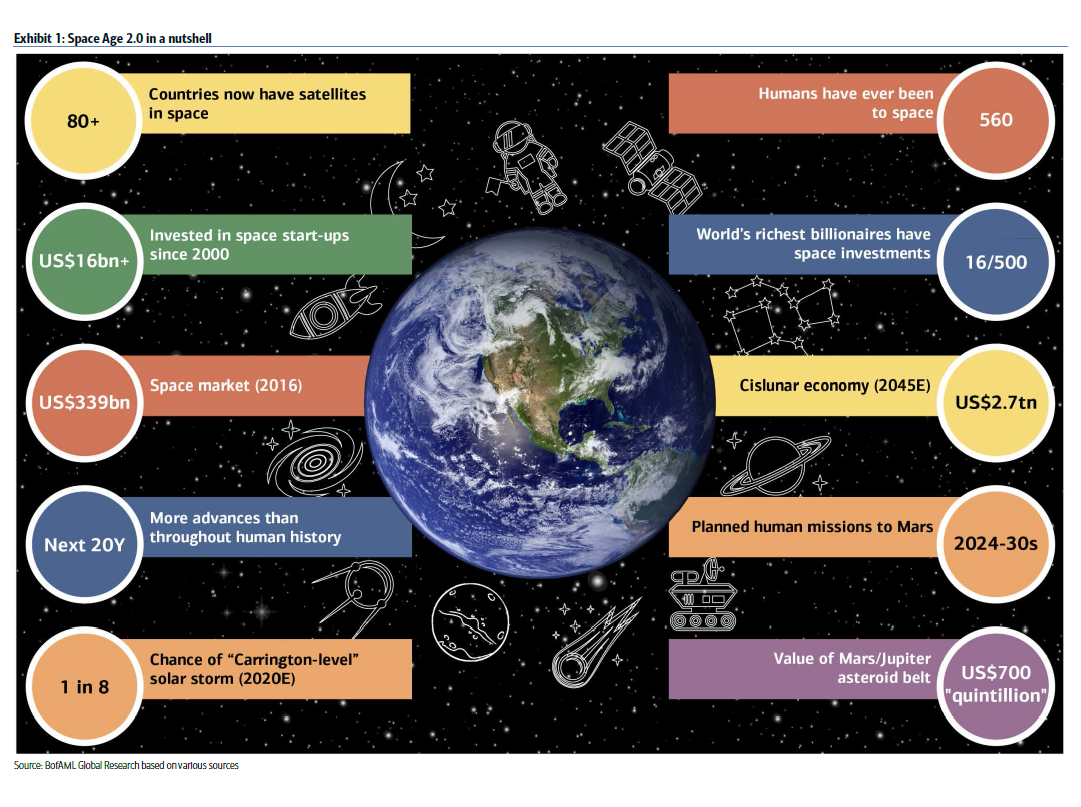Bank of America Merrill Lynch sees the size of the space industry octupling over the next three decades, to at least $2.7 trillion.
“We are entering an exciting era in space where we expect more advances in the next few decades than throughout human history,” the firm wrote in a report on Monday.

As the cost of space access plummets, BofAML joined Morgan Stanleyamong Wall Street investment banks bullish on the extraterrestrial industry. Both put the space market today at around $350 billion, but BofAML's outlook is nearly triple Morgan Stanley's expectation of a $1.1 trillion market by 2040.
A raft of new drivers," BofAML said, is pushing the "Space Age 2.0": reusable launch by SpaceX, the growth of private ownership in the market, investment by more than 80 countries and the falling launch costs from vehicles by the likes of Rocket Lab and Vector. The firm cautioned that this is a market where companies traditionally have had trouble turning profits.

“However, for investors with a truly long-term time horizon, we see it as one of the final frontiers of investing,” BofAML said.
There are only five "pure play" companies — defined as having 100 percent of sales in the space business — in the firm's report. All five work with satellites, with ViaSat and Intelsat SA based in the U.S., while Inmarsat, SES and Eutelsat are based in Europe. The companies are also fairly small, with values ranging from $500 million to $9.6 billion.
While the report highlights more than 70 global stocks, the remainder have medium-to-low exposure to the space industry's growth. Other opportunities range from incumbent aerospace and defense companies — Boeing, Lockheed Martin, Northrop Grumman — to technology giants — Facebook, Google and Microsoft.
Space is "a hotbed for disruptive technologies," the firm said. Today's benefit from satellites is nearly immeasurable, and massive projects such as the International Space Station or the Stratolaunch aircraft are possible only through the industry's growth.
